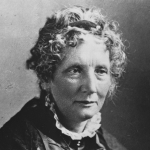Kind pity chokes my spleen; brave scorn forbids
Those tears to issue which swell my eyelids;
I must not laugh, nor weep sins and be wise;
Can railing, then, cure these worn maladies?
Is not our mistress, fair Religion,
As worthy of all our souls' devotion
As virtue was in the first blinded age?
Are not heaven's joys as valiant to assuage
Lusts, as earth's honour was to them? Alas,
As we do them in means, shall they surpass
Us in the end? and shall thy father's spirit
Meet blind philosophers in heaven, whose merit
Of strict life may be imputed faith, and hear
Thee, whom he taught so easy ways and near
To follow, damn'd? Oh, if thou dar'st, fear this;
This fear great courage and high valour is.
Dar'st thou aid mutinous Dutch, and dar'st thou lay
Thee in ships' wooden sepulchres, a prey
To leaders' rage, to storms, to shot, to dearth?
Dar'st thou dive seas, and dungeons of the earth?
Hast thou courageous fire to thaw the ice
Of frozen North discoveries? and thrice
Colder than salamanders, like divine
Children in th' oven, fires of Spain and the Line,
Whose countries limbecs to our bodies be,
Canst thou for gain bear? and must every he
Which cries not, "Goddess," to thy mistress, draw
Or eat thy poisonous words? Courage of straw!
O desperate coward, wilt thou seem bold, and
To thy foes and his, who made thee to stand
Sentinel in his world's garrison, thus yield,
And for forbidden wars leave th' appointed field?
Know thy foes: the foul devil, whom thou
Thee fain his whole realm to be quit; and as
The world's all parts wither away and pass,
So the world's self, thy other lov'd foe, is
In her decrepit wane, and thou loving this,
Dost love a wither'd and worn strumpet; last,
Flesh (itself's death) and joys which flesh can taste,
Thou lovest, and thy fair goodly soul, which doth
Seek true religion. O where? Mirreus,
Thinking her unhous'd here, and fled from us,
Seeks her at Rome; there, because he doth know
That she was there a thousand years ago,
He loves her rags so, as we here obey
The statecloth where the prince sate yesterday.
Crantz to such brave loves will not be enthrall'd,
But loves her only, who at Geneva is call'd
Religion, plain, simple, sullen, young,
Contemptuous, yet unhandsome; as among
Lecherous humours, there is one that judges
No wenches wholesome, but coarse country drudges.
Graius stays still at home here, and because
Some preachers, vile ambitious bawds, and laws,
Still new like fashions, bid him think that she
Which dwells with us is only perfect, he
Embraceth her whom his godfathers will
Tender to him, being tender, as wards still
Take such wives as their guardians offer, or
Pay values. Careless Phrygius doth abhor
All, because all cannot be good, as one
Knowing some women whores, dares marry none.
Graccus loves all as one, and thinks that so
As women do in divers countries go
In divers habits, yet are still one kind,
So doth, so is Religion; and this blind-
ness too much light breeds; but unmoved, thou
Of force must one, and forc'd, but one allow,
And the right; ask thy father which is she,
Let him ask his; though truth and falsehood be
Near twins, yet truth a little elder is;
Be busy to seek her; believe me this,
He's not of none, nor worst, that seeks the best.
To adore, or scorn an image, or protest,
May all be bad; doubt wisely; in strange way
To stand inquiring right, is not to stray;
To sleep, or run wrong, is. On a huge hill,
Cragged and steep, Truth stands, and he that will
Reach her, about must and about must go,
And what the hill's suddenness resists, win so.
Yet strive so that before age, death's twilight,
To will implies delay, therefore now do;
Hard deeds, the body's pains; hard knowledge too
The mind's endeavours reach, and mysteries
Are like the sun, dazzling, yet plain to all eyes.
Keep the truth which thou hast found; men do not stand
In so ill case, that god hath with his hand
Sign'd kings' blank charters to kill whom they hate;
Nor are they vicars, but hangmen to fate.
Fool and wretch, wilt thou let thy soul be tied
To man's laws, by which she shall not be tried
At the last day? Oh, will it then boot thee
To say a Philip, or a Gregory,
A Harry, or a Martin, taught thee this?
Is not this excuse for mere contraries
Equally strong? Cannot both sides say so?
That thou mayest rightly obey power, her bounds know;
Those past, her nature and name is chang'd; to be
Then humble to her is idolatry.
As streams are, power is; those blest flowers that dwell
At the rough stream's calm head, thrive and do well,
But having left their roots, and themselves given
To the stream's tyrannous rage, alas, are driven
Through mills, and rocks, and woods, and at last, almost
So perish souls, which more choose men's unjust
Power from God claim'd, than God himself to trust.


















Comment form: